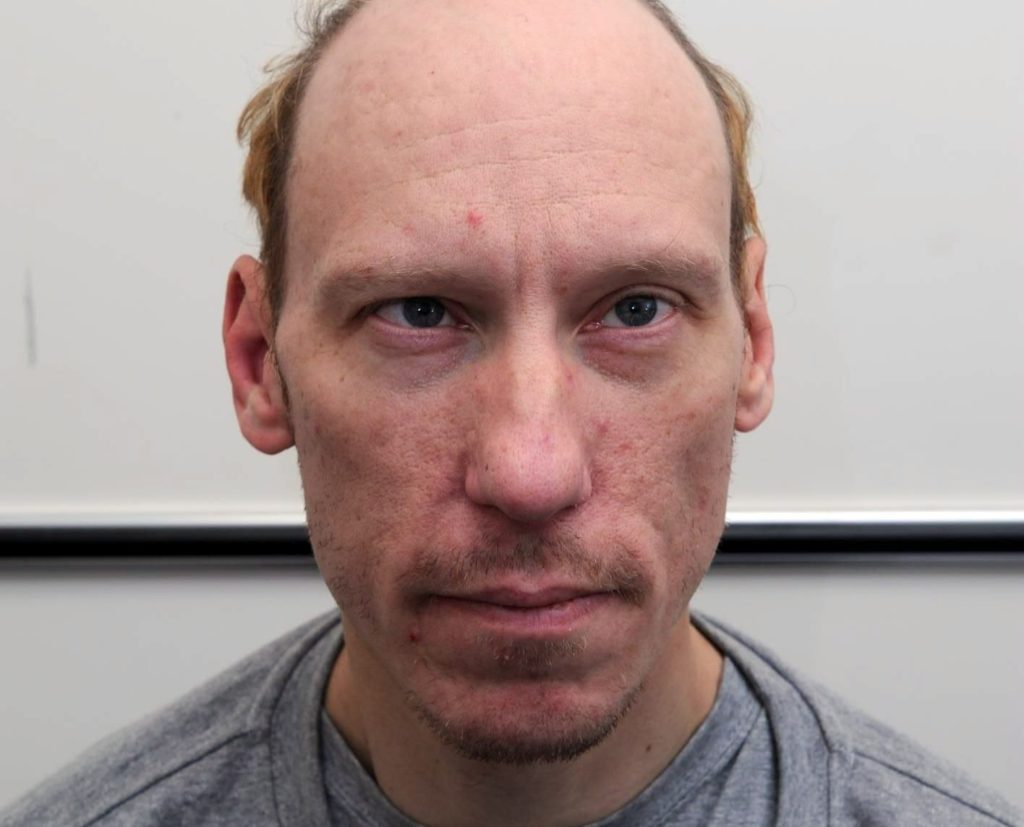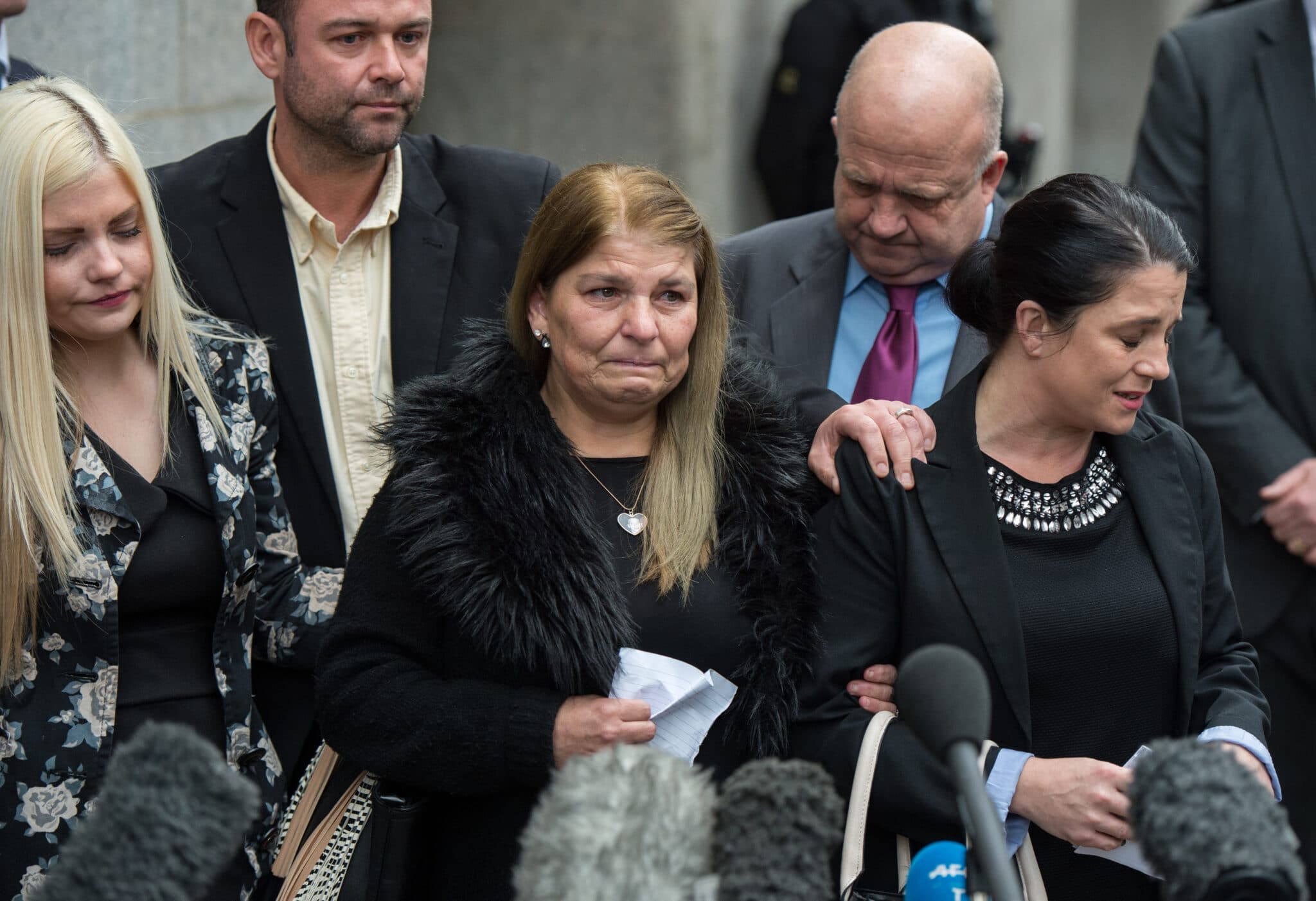Who were Grindr serial killer Stephen Port’s tragic victims?

Stephen Port’s victims (clockwise form top left) Anthony Walgate, Gabriel Kovari, Daniel Whitworth and Jack Taylor. (Justice for our Murdered Boys)
A new BBC drama, Four Lives, tells the true story of the failed investigation into serial killer Stephen Port and the four young, gay victims whose lives he stole.
The first episode of the three-part drama aired on Monday (3 January), having been delayed by an damning inquiry into the Metropolitan Police’s handling of the murders.
The drama centres around the courageous families and friends of Port’s victims, who relentlessly fought for justice.
Who were Stephen Port’s victims?
Stephen Port’s first victim was Anthony Walgate, a 23-year-old from Hull who was studying fashion in London.
Walgate dreamed of becoming a famous menswear fashion designer and sometimes worked as an escort to make money.
In June 2014, he received a message from Port, who used an alias on a dating site, offering him £800 for an overnight stay. Tragically, Walgate would never return.
At 4.18 am on 19 June 2014, emergency services received an anonymous call saying that a “young boy” had collapsed on Cooke Street in Barking, east London. When police and paramedics arrived, they found Walgate slumped against a wall, dead, outside Port’s house.
It later transpired that Port had been the one to phone the emergency services and, in a witness statement, he later told police that he had returned home to find Walgate outside his house. He said he had called an ambulance before going to bed.
After further investigation, police discovered that Port had lied in his statement and that he had hired Walgate as an escort.
He was charged with perverting the course of justice, but Walgate’s death, from a fatal overdose of the date rape drug GHB, was not treated as suspicious.
Port was released on bail, during which time he would kill twice more.

Grindr serial killer Stephen Port. (Metropolitan Police)
Gabriel Kovari was found in a churchyard by a dog walker
Gabriel Kovari, from Slovakia, moved to London when he was 22 after he had finished university.
He hoped to find work as a translator with the NHS or the Metropolitan Police and stayed in the spare room of John Pape. The pair soon became good friends.
Pape previously told PinkNews: “He was a really decent, smart, intelligent, considerate, creative, talented young guy, and he would have led a really interesting life, I think.”
After just six weeks of friendship, and around two months after Anthony Walgate’s death, a dog walker found Kovari’s body in the churchyard at St Margaret of Antioch, Barking, right next to Port’s flat.
Like Walgate’s, Kovari’s death by GHB overdose was not treated as suspicious, despite the recent nearby death of another young, gay man.
Stephen Port faked a ‘suicide note’ for third victim Daniel Whitworth
Stephen Port’s third and youngest victim was 21-year-old Daniel Whitworth, who was working as a chef in Canary Wharf and lived with his long-term boyfriend, Ricky Waumsley.
Whitworth was found dead less than a month after Gabriel Kovari, in the same church and by the same dog walker.
His body was found with a “suicide note” which took responsibility for Kovari’s death.
The note claimed the two young men had been “having some fun at a mate’s house”, and that Whitworth had gotten “carried away and gave him another shot of [GHB]”.
The note bizarrely added: “Please do not blame the guy I was with last night, we only had sex and then I left, he knows nothing of what I have done.”
It was not analysed by a handwriting expert at the time and no DNA samples or fingerprints were taken from his clothes, the bed sheet he was found on, or the drugs bottles which had been planted on him.
Police took the “suicide note” at face value, despite there being no evidence that Whitworth had ever met or contacted each other.
Waumsley was excluded from the investigation, not even allowed to see his late partner’s “suicide note” until an inquest into his death a year later.
Jack Taylor’s family, faced with police failing, investigating his death themselves
Jack Taylor was Port’s final victim, who was found dead in the same churchyard as Gabriel Kovari and Daniel Whitworth, was 25-years-old and still in the closet, living with his parents in Dagenham.
His family were perplexed when police said that Taylor had died of a drug overdose, as he dreamed of becoming a police officer and was vehemently anti-drugs. At the time of his death, he was a forklift truck driver and was regularly drug tested.

Mum Jeanett Taylor (C) and Donna Taylor (R), of victim Jack Taylor speak to the media after a guilty verdict being found againt Stephen Port. (Getty/ Chris J Ratcliffe)
Taylor’s sisters conducted their own investigation after his death and managed to link all four of Port’s victims. They passed on information to the police, but were continually dismissed.
Port’s victims were finally linked by police after a CCTV image was discovered, showing Taylor with Port. The “Grindr killer” was arrested on the morning of 18 October, 2015.
Stephen Port was was convicted of seven rape charges in addition to the four murders
During Stephen Port’s trial, the media coverage of the case encouraged further victims to come forward.
Seven charges of rape and four of sexual assault were added to Port’s four murder charges, all of which he denied.
Port is currently serving a whole-life sentence for his crimes, meaning that he will die behind bars.

